Chiktan Fort, situated in the Kargil district of Ladakh, is an ancient monument that showcases the traditions of the people from this region beautifully. Built in the 16th century by Balti craftsmen, Chiktan Fort was a royal and military building for many years. This point worked as an outpost for soldiers, demonstrating the construction talents of those months. This fort has been an important goal and issue in the history of this nation as many events and confrontations, political or not, have taken place around the region in the Fort’s timeline.
Location
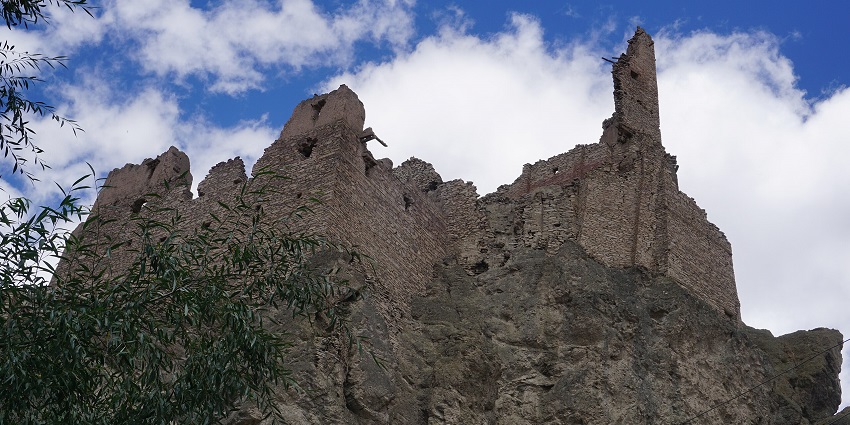
Photo: Deepank Ranka / Wikimedia Commons
Chiktan Fort or Chiktan Khar from its other name is found in the beautiful village of Chiktan which is in the Kargil district of Ladakh in India. It is about 75 kilometres from Kargil making it possible to visit after a picturesque drive along the Srinagar-Leh Highway.
Suggested Read: Top Places To Visit In Kargil To Explore History And Unveil Adventure
How To Reach
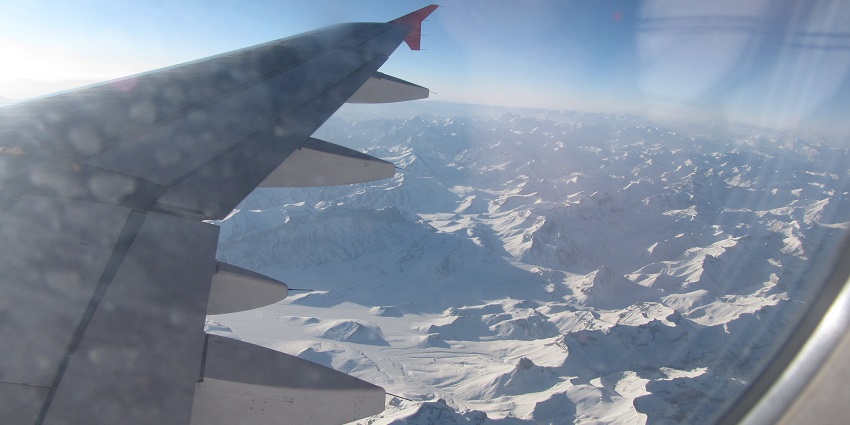
Photo: Christopher John SSF / Wikimedia Commons
Chiktan Fort, located in Kargil, Ladakh is also accessible by the following transportation means for tourists:
By Air: First, fly to Kushok Bakula Rimpochee Airport (IXL) in Leh. Taxi or bus service is available from Leh to Kargil.
By Road:Chiktan Fort is situated approximately 75 km away from Kargil. A taxi charges between ₹1,500-2,000 for this journey; local buses ply this route for about ₹100.
By Train: The nearest major railway station is Jammu Tawi. Subsequently, hire a cab or take a bus to Kargil.
Places To Visit Around Chiktan Fort
Chiktan Fort is surrounded by several other attractions further enhancing the enjoyment of the tourists.
1. Shargole Cave Monastery
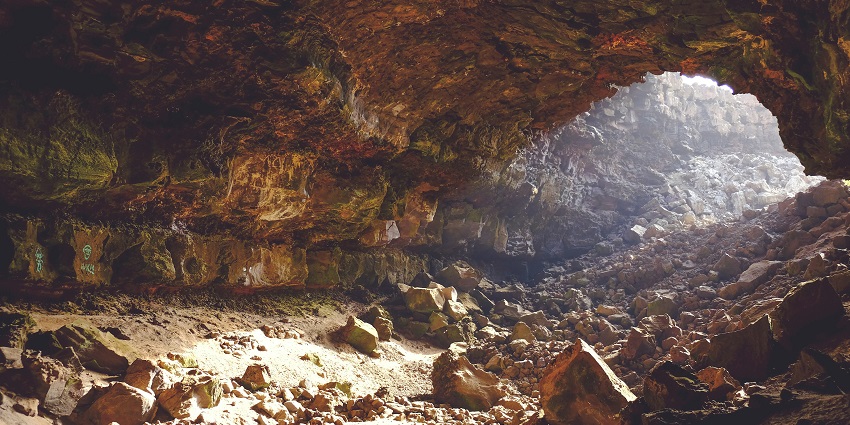
Photo: Ksenia Kudelkina / Unsplash / Image For Representation Only
Shargole Monastery in Ladakh is one of those small Buddhist monasteries that are constructed on a rocky hill. Shargole monastery is of the Gelug tradition of Tibetan Buddhism and has an overlooking valley. This place is very interesting because historically, it was located on a pass that guarded the trade routes between Kashmir and Ladakh. The fort also known as sigiri was built to house the clan of lamas and their belongings. The ruins of the ancient fortress give the impression of a building that is hanging onto the cliff in an almost perpendicular position.
Location: Shargole, near Kargil, Ladakh
Distance: 30 km
Best Time To Visit: May to September
Suggested Read: Places To Visit In Ladakh
2. Basgo Fort
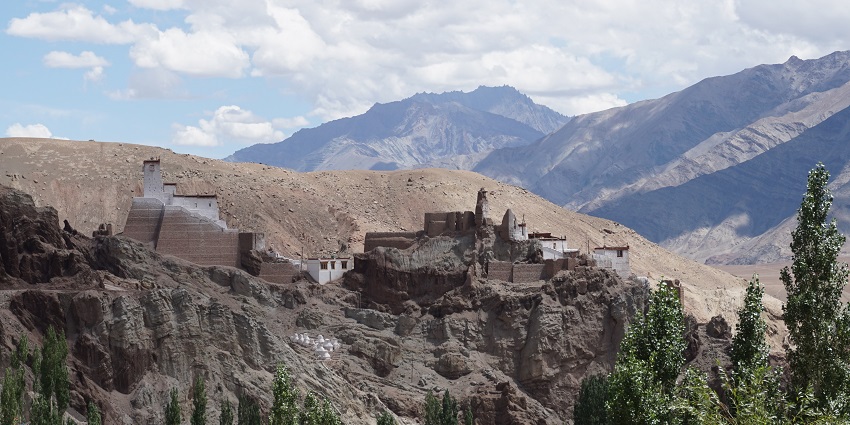
Photo: Deepank Ranka / Wikimedia Commons
Basgo Fort built somewhere around 40 kilometres in Ladakh about 40 km from Leh, is an ancient monument of a fort that was used as a defensive structure by the Namgyal dynasty. It was built in the 16th century and was important for the defence of the region of Ladakh. The fort provides astounding vistas of the landscape thanks to its marvellous architecture made of mud bricks. Basgo Monastery, located in the centre of the fort complex, comprises three temples dedicated to the Maitreya Buddha. The remains of the structures offer a striking contrast of Tibetan and Indian design, and tourists are free to walk among them.
Location: Basgo, Leh District, Ladakh
Distance: 50 km
Best Time To Visit: May to September
3. Dras Valley
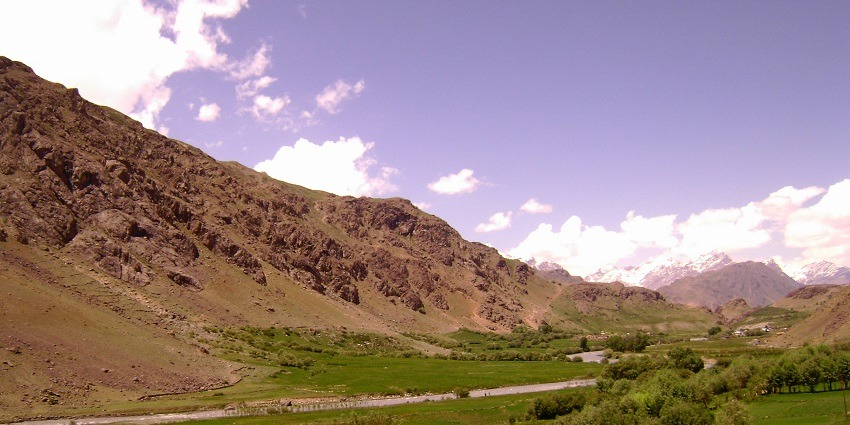
Photo: Rohan / Wikimedia Commons
Dras Valley, commonly called the “Gateway to Ladakh,” is situated in the Kargil district and is famous for its beautiful vistas and historic values. Among the highlights are the Dras War Memorial, which pays tribute to soldiers who lost their lives in the war, and the stunning Mushkoh Valley, which is famous for its trekkings and wildflowers. Some of the other sites that travellers can visit are Gomchan Valley and Thasgam Valley.
Location: Drass Valley, Kargil District, Ladakh
Distance: 60 km
Best Time To Visit: June to September
Suggested Read: Top Places To Visit In Nubra Valley
4. Suru Valley
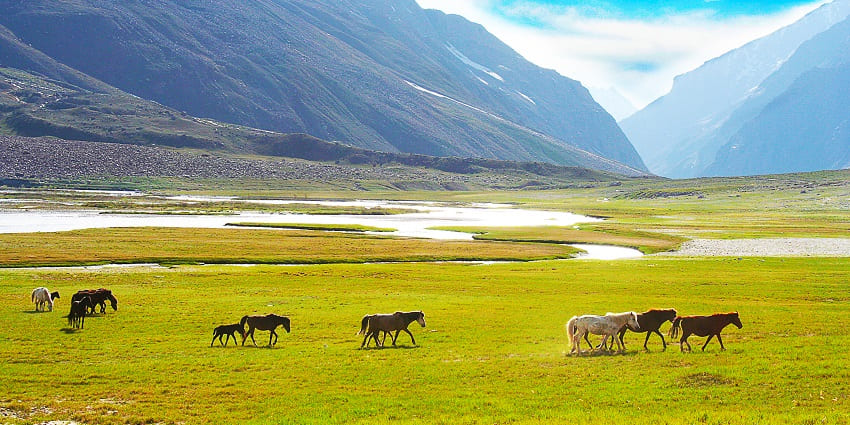
Photo: Narender9 / Wikimedia Commons
Suru Valley is a beautiful work of nature’s art characterised by thick vegetation, plantation, and towering hills. This valley is also guarded by the beautiful Nun and Kun peaks which make it a haven for trekkers and all other adventure lovers. Popular trekking trails include a four-day hike to Shargole and a three-day hike to Dras. The Suru River, which also results from the Panzella glacier, runs across the valley allowing some river rafting activities.
Location: Suru Valley, Kargil District, Ladakh
Distance: 40 km
Best Time To Visit: May to October
5. Mulbekh Monastery
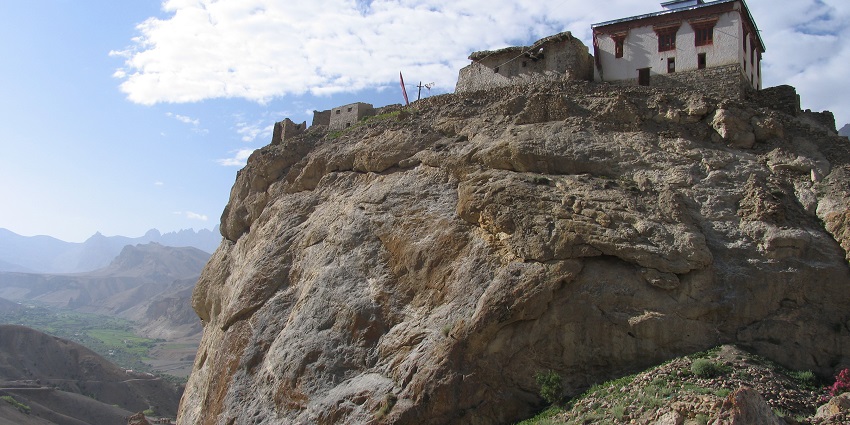
Photo: Jparande / Wikimedia Commons
Mulbekh Monastery or Mulbekh Gompa is a major Buddhist centre established within the state of Ladakh, India. Located at an elevation of nearly 11,495 feet, it houses an exquisitely carved 30-foot rock Moat of Maitreya Buddha that was built in the 9th century. This unique figure built within the cliff surface, represents the Messianic figure of Buddha and is flanked by ancient carvings done in Kharosthi configuration.
Location: Mulbekh, Kargil District, Ladakh
Distance: 35 km
Best Time To Visit: May to October
Visiting Hours: 8 AM – 6 PM
Suggested Read: Enhance Your Vacation With These Things To Do In Ladakh
Where To Stay
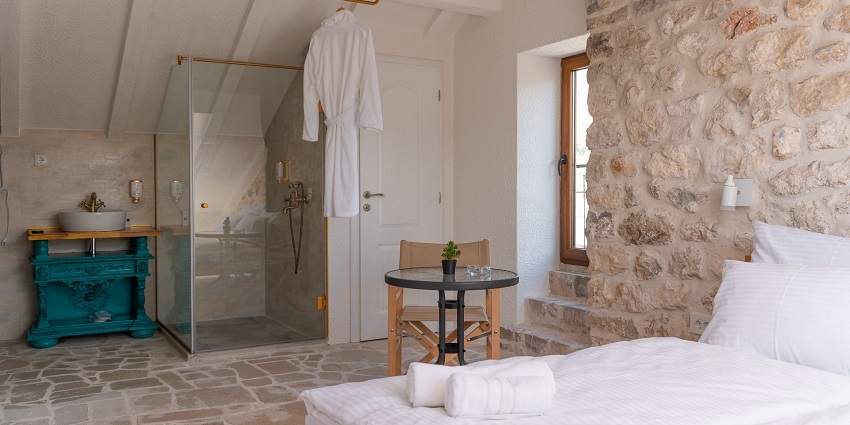
Photo: Humsko / Wikimedia Commons
In the vicinity of Chiktan Fort, visitors will find several hotels suitable for their tastes with the emphasis mainly put on the Tourist Bungalow, a property managed by the Jammu and Kashmir Tourism Development Corporation. Also, several guesthouses and homestays have come up for the tourists as well but these are rather devoid of authenticity. For some travellers, a stay in the company of local hosts can also add colour to their visit.
Where To Eat
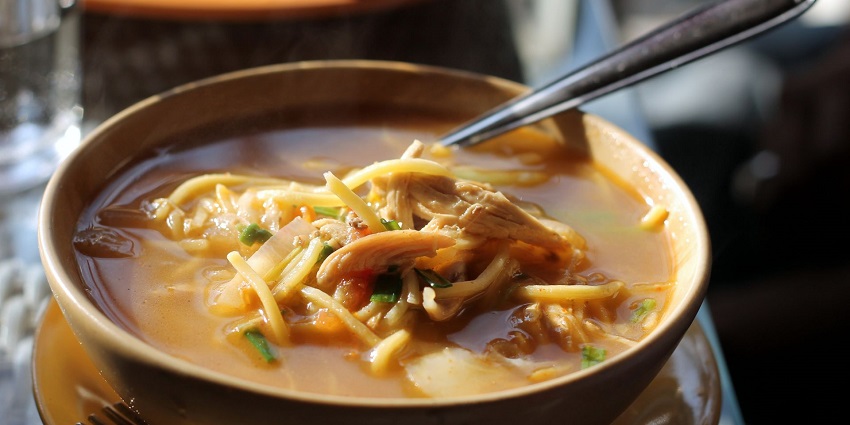
Photo: Arunabha.Goswami / Wikimedia Commons
La Wazwan can be considered if one wants to indulge in the delicious Kashmiri cuisine famous for its variety and cooking theft. Cafe 99 is more of a family-friendly kind of restaurant that serves both local and continental cuisine in an average price range. Kashmiri kebabs or pav bhaji from stalls are a few food items available on the street, along with many others, so enjoy the street food culture especially.
Suggested Read: Discover The Famous Monasteries In Ladakh
Best Time To Visit
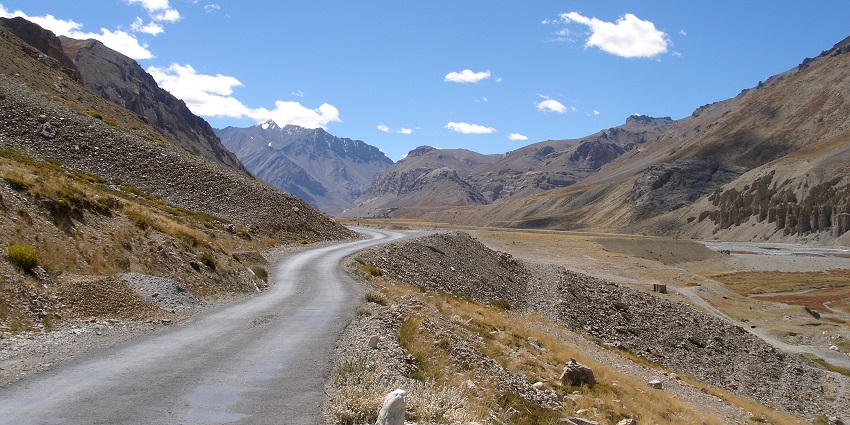
Photo: Vyacheslav Argenberg / Wikimedia Commons / Image For Representation Only
The best time to visit Chiktan Fort is between May and September. These are the few summer months that Ladakh enjoys legs within 15 – 25 degrees Celsius making it suitable for outdoor activities. Tourist season in the region starts in May and June as the area starts to thaw after a long winter. This is a suitable season for tourists who love hiking and taking pictures because flowers have started to bloom and the scenery is magnificent.
Other Factors To Consider
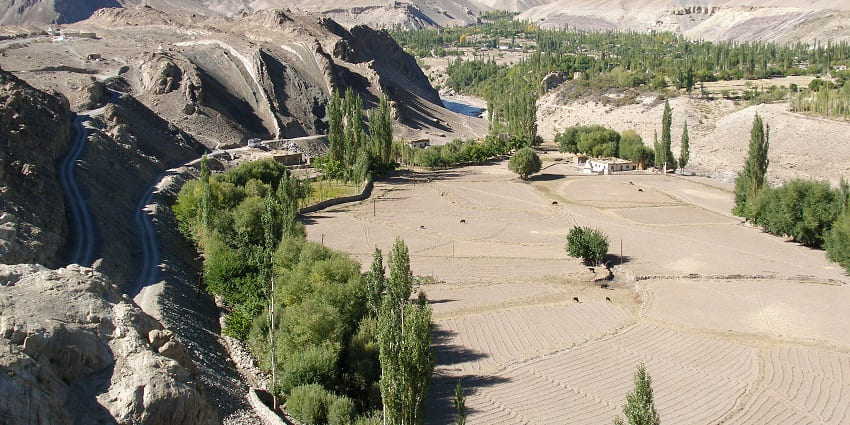
Photo: Vyacheslav Argenberg / Wikimedia Commons
Here are some factors to consider while you plan your trip to Chiktan Fort.
Average Cost Of The Trip
The average cost of travelling to Chiktan Fort will depend mainly on how one travels, where one stays, what they eat and any other activities included. Here is a breakdown. For a 2 – 3 day trip, it is projected that the total cost will vary from a minimum of ₹4,000 maximum of up to ₹10,000 based on one’s preferences and style of travelling.
Tips For The Travelers
- Stay Hydrated: Trekkers should carry enough water since services are limited, especially in our region.
- Dress Properly: Dress for the weather wearing ‘weather fitted’ clothes and appropriate shoes as the weather can change drastically at any time.
- Bring Enough Cash: It is advised to carry cash for the trip as ATMs may not be very close by, if available at all.
- Safety Measures: Be careful to step back while exploring ruins as some areas may pose risks of falling debris.
Suggested Read: Adventure Sports In Ladakh – Planning The Ultimate Trip
Chiktan Fort is not just a historical site, rather it is a portal to the many cultures in Ladakh. As you walk around the ruins, pause for a moment and think about the tales that these walls enclose; the tales of fighting, building and living. Plan your trip to Chiktan Fort with TripXL which will allow you to take back memories that will remain with you for years even after your return from those spectacular ruins.
Cover Photo: Deepank Ranka / Wikimedia Commons


 WhatsApp
WhatsApp
 Twitter
Twitter









